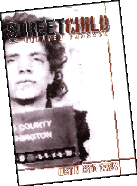 |
Justin Reed Early
AuthorHouse (self-published)
289 pages. $19.99 ($15.99 paperback).
Justin Early is a survivor. In his late 30s, an invitation to serve on the board of directors of the National Network for Youth prompted an avalanche of vivid memories that became this searing memoir. An author’s note describes his process of recalling and researching his childhood on the streets.
Chapter Zero begins a year and a half before Early started writing this memoir. While driving to his office in Beverly Hills, he receives a call from his mother. He can’t help rejoicing inwardly at her news that his father is very ill. He flies home to help his mother, not his father, who won’t speak to him. After drinking all day, his father launches cruel verbal attacks that turn physical when Early finally retorts.
This poisonous scene has replayed throughout their lives. In this instance, Early walks out to avoid injuring the sick old man. But in 1980 at age 10, little Justin fled because he couldn’t fight back.
Now that story begins. Running away from foster homes and a residential facility, Justin soon becomes the youngest in a network of Seattle street kids. His pint-sized charm helps him find free places to sleep. Panhandling feeds him. To earn cash for doing drugs with his friends, Justin allows a child pornographer to take pictures. He turns 11 in time for his first arrest for prostitution.
When outreach worker Tom takes Justin home to his white, middle-class town, his father bars the door to the “little faggot criminal.” Back on the streets, confused about his sexuality, Justin finds refuge in his love for Andre, but is forced to live with child molester Preacher Man.
Appearing in the documentary “Streetwise,” Justin and his friends hope that when the world sees their plight, someone will “fix our problems.” Despite the film’s nomination for a 1984 Academy Award, their problems remain. During four years in and out of youth detention, Justin endures a “vicious, exhausting cycle” of getting money for drugs so he can “get numb enough to do the things required to get more money.” Heroin addiction claims him. After testing positive for HIV at age 21, he enters a drug treatment program.
How Justin reclaims his life to become a successful businessman is the rest of the story, which ends quietly in a powerful moment of healing, as he forgives his father.
Readers witness a sordid, nightmarish reality that most are fortunate enough not to know firsthand. What makes his story transcendent is his abiding love for his vanished street family and everyone who extends a helping hand, from attorneys to outreach workers.
Early’s closing “Op-Ed” makes a plea for overcoming the intolerance that people like his father show toward their gay and lesbian children, estimated as 40 percent of the 2 million homeless young people on America’s streets. Early wants his story to remind us of these “throwaway” kids as it helps them discover that they can “heal their own lives.”
A portion of the book’s proceeds benefits nonprofit organizations, including those that aided its author. (888) 519-5121, http://www.authorhouse.com; http://www.streetchildmemoir.com.
Reviewer Jonetta Rose Barras, the author of Bridges: Reuniting Daughters and Daddies, can be reached at Rosebook1@aol.com.



























